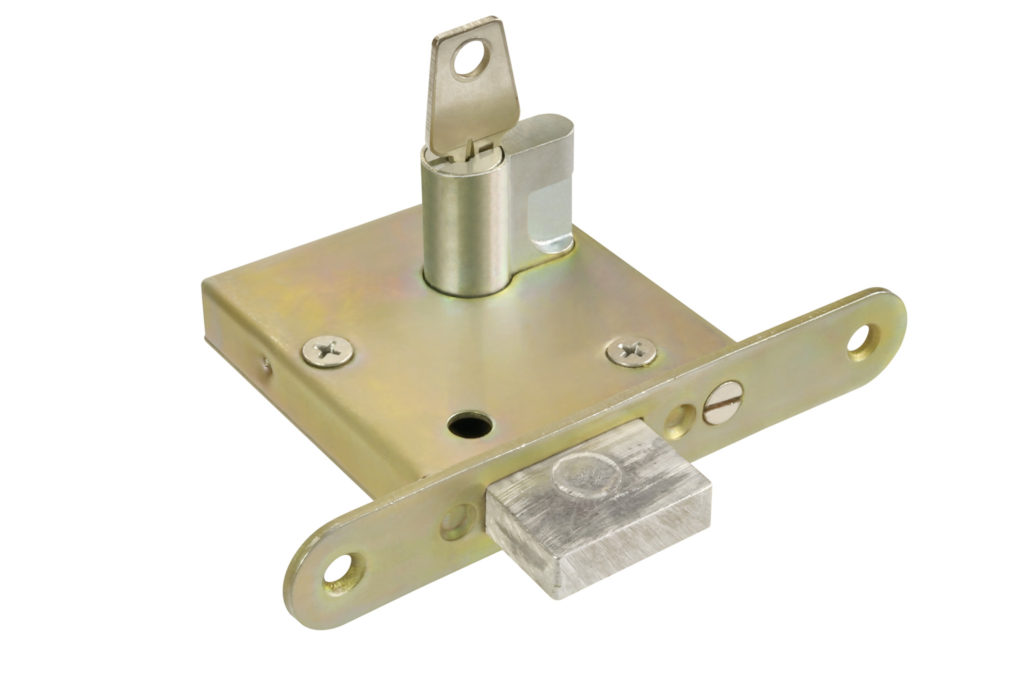
The word, mortise is a term used to describe the hole created through a door for fixing a lock. A mortise lock is installed onto a hole drilled through the door to control access. Although most mortise door locks are used on wooden doors, modern models are designed for use in metallic doors as well, which makes them very versatile and convenient in homes and businesses.
Similar to RIM locks, mortise locks are also available in the form of sashlocks or deadlocks. Compared to other kinds of keyed entry doors, mortise locks have been around for decades and considered very durable. Besides, their designs are also relatively different to ensure that you have a wide range of options to choose from.
Types of Mortise Locks
Mortise locks can be divided into two main categories; Lever Mortise locks and Cylinder Mortise locks.
Lever Mortise Locks
These are mainly used in residential establishments and, work in a very simple way. Whenever you insert a key into the door lock and turn it, the levels inside the lock are lifted to the required level, facilitating the locking and unlocking of the bolt holding the door. The number of levers in a lever mortise lock can vary based on the thickness of the door and where it is used. The most popular types of lever mortise locks include 2 lever mortise locks, 3 lever mortise locks and 5 lever mortise locks.
Cylinder Mortise Locks
These are quite different from lever mortise locks. They use a cylinder to facilitate the movement of the bolt instead of a key. Most cylinder mortise locks are used in business premises, however, many people are also fitting them in their homes. These locks have oval-shaped profile cylinders that can be operated from both inside and outside of the door.
Components of a Mortise Lock
Generally, a mortise lock has five main components or parts, working together to facilitate access control. These parts include, the lock body, handle or knobs, spindle, lock cylinder and strike plate. The components are made of solid metallic materials. As a result of this, it is relatively heavier and more compact than most types of locks with keyed access. However, this only makes it more durable to serve you better for a longer period of time. For the lock to operate as desired, all the components must be properly assembled and fitted into the mortise or hole on the door.
There are also some models of mortise locks with day/ night switches. These work by locking the door from outside but, leaving it unlocked on the inside. Besides, the switch can also be engaged to keep both sides of the door unlocked. Other components of a mortise lock also include, face plates, hard collars among others.
The lock body of a mortise lock houses the bolt work that operates by engaging and disengaging the lock. The knobs or handle are used to facilitate the retraction of the latch whenever the door is not locked. The strike plate play an integral role in lining up the components of the lock to hold in place. On the other hand, the lock cylinder is threaded and passes through the hole drilled onto the door into the body of the lock to unlock the door whenever a key is inserted.
Application of a Mortise Lock
Mortise locks are mainly used in commercial buildings because of their sturdy construction and reliability. Although the components usually vary from model and brand to another, this type of door lock is designed to resist burglary and a wide range of threats. In fact, mortise locks are recommended for premises that experience heavy traffic like, public buildings. They are ideal for shopping malls, hospitals, hotels, schools, industries among other commercial establishments.
Considering the numerous moving components of a mortise lock, they usually require servicing or replacements after using them for an extended period of time. Depending on the condition of the lock, you can be required to change all the components or just some of them. However, that should not worry you since the internal parts of the lock are designed for easy servicing and replacement.
If used and serviced appropriately, mortise locks can last for decades without any hitch. However, you must make sure that the task is conducted by a professional who truly understands the design of this type of lock and how it operates. Attempting to service or replace the components of a mortise lock on your own could impact more complications that might even end up destroying the entire system.
For more information about mortise locks, simply talk to us.
